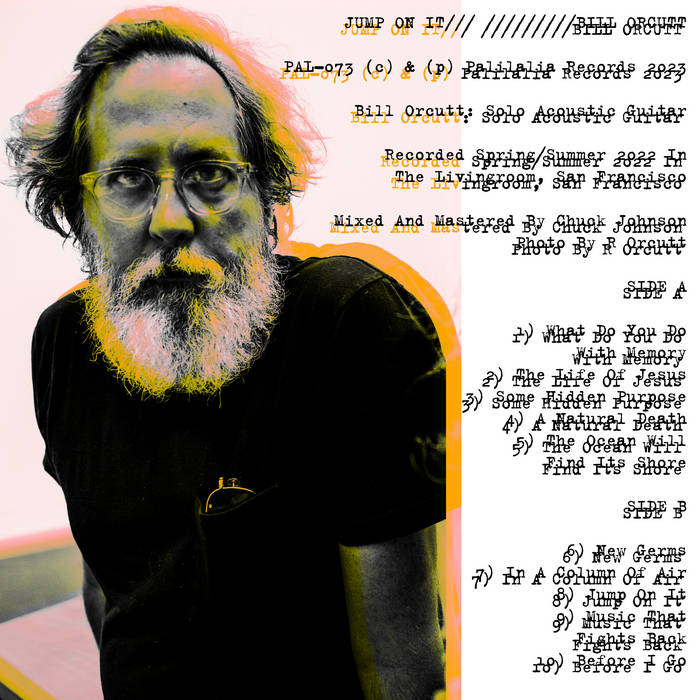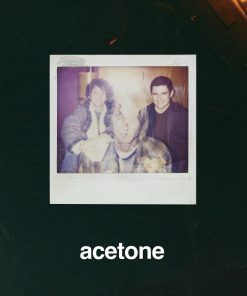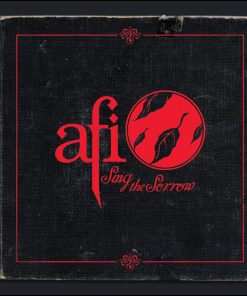Bill Orcutt – Jump On It LP Palilalia Records
$ 24,98 Original price was: $ 24,98.$ 14,99Current price is: $ 14,99.
LP version. “It’s been ten years since Bill Orcutt released A History of Every One (EMEGO 173CD, 2013), a compendium of hacksaw renditions of American standards on acoustic guitar — and since ten years is a blink of an eye, you are forgiven for not immediately realizing that we’ve gone an entire decade waiting for Jump On It, the next Orcutt solo acoustic record. As those of us of ‘a certain age’ will tell you (ad nauseam), a decade is a blink of an eye containing an infinity of experiential moments, and if this record is any gauge, the weight of those experiences have squashed Orcutt’s rough edges, feathered his stop-motion timing into a languid lyrical flow, and snapped the shackles tethering his instant compositional skills to the imperative to deconstruct guitar history. In short, Jump On It is a collection of canonical, mature acoustic guitar soli to contrast against the fractured downtown conceits of previous acoustic releases. For those paying attention to the arc of Orcutt’s electric records, which chart a course from Quine‘s choppiness to Thompsonian/Verlaine-ian flow, it should be no surprise that the ten-year gap between acoustic records should expose a similar underlying journey. But what’s maybe more surprising is that Jump On It, with its living-room aesthetics and big reverb, packs a disarming intimacy absent from the formal starkness of Orcutt’s earlier acoustic outings. Although you might sense the looming human in the audible breath whispering intermittently between chords (a physical flourish reminiscent of the late Jack Rose), such documentarian signposts are the exception rather than the rule. Not quite refuting (yet not quite embracing) the polish of revered watershed records by Bert Jansch, John Renbourn, or Bola Sete, Jump On It treads a path between the raw and the refined, exemplified in tracks such as ‘The Life of Jesus’ and ‘In a Column of Air’ that alternate swaying chords with Orcutt’s trademark angular quicksilver runs (cut brickwall short). While you won’t mistake Jump On It for incidental music, at least not if taken at full strength, stray passages radiate a conversational beauty that would please the most dissonance-adverse listener. Strangely, some of the melted lockstep grooves found in Jump On It evoke nothing other than Music for Four Guitars (PAL 068CD/LP). While many of the linear runs are clearly improvised, and the phrasing distinctly slurred, intuitive and non-mechanical, the strummed chords hint at a cellular construction similar to Jump On It‘s electric predecessor. (Orcutt states that he prefers to keep his strategies obscure — but that implies there is in fact a strategy). Whatever the case, I also hear Satie in Music for Four Guitars, and I hear him here too, hidden within Jump On It‘s lilting repetition, which I easily imagine stretching to an infinitely-distant horizon. Like each of Satie’s three Gymnopedies, each facet of Jump On It is a tiny miniature bound in a slim volume, an earworm you might savor again and again upon awakening or before drifting off. Each track is a key to a memory, a building block in a shining anamnesis leading to the recollection that hey, we’re all humans in a shared cosmos, and music is one way we might make that universe go down easy. And who wouldn’t jump on that?” —Tom Carter Recorded Spring/Summer 2022 at the Living Room, San Francisco. Mixed and mastered by Chuck Johnson.
Fast Shipping and Professional Packing
We offer a broad range of shipping options due to our long-running partnerships with UPS, FedEx and DHL. Our warehouse employees will pack all goods to our exacting requirements. Your items are carefully inspected and secured properly prior to shipping. We ship to thousands of customers every day from all over the world. This demonstrates our dedication to becoming the largest online retailer in the world. Warehouses and distribution centres can be located in Europe as well as the USA.
Note: Orders that contain more than one item will be assigned a processing date depending on the item.
We will carefully examine all items before sending. Today, the majority of orders will be shipped within 48 hours. The expected delivery time will be between 3 and 7 days.
Returns
Stock is dynamic. It's not completely managed by us, since we have multiple entities, including the factory and the storage. The actual inventory can fluctuate at any time. It is possible that the stocks could be depleted after your order has been processed.
Our policy lasts 30 days. If you haven't received the product within 30 days, we're not able to issue a refund or an exchange.
To be eligible for a refund the product must be unopened and in the same state as when you received it. The item must be returned in its original packaging.
Related products
Uncategorized
Uncategorized
Uncategorized
Uncategorized
Uncategorized
Uncategorized
Uncategorized
Uncategorized
Uncategorized
Uncategorized
Uncategorized
Uncategorized
Uncategorized
Uncategorized
Uncategorized
Uncategorized
Uncategorized
Uncategorized
Uncategorized
Uncategorized
Uncategorized
Uncategorized
Uncategorized




































